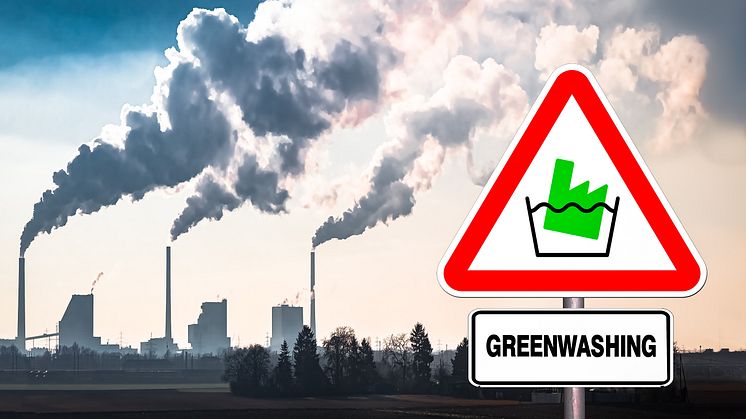
Blog post -
If you don't stop greenwashing, governments will regulate
The biggest threat to our climate is not just that companies are not committing themselves to action. It’s that they say they are when they are not.
Broadly, companies appear to be in disarray: Some have no goals at all, but of those that do, some aren’t taking action because they underestimated the task. Some have a firm grip on their goals but don’t know how to achieve them. Some know how to achieve them but simply don’t have the resources or the capacity to do so. Some are working towards goals which are different from those recommended by scientists.
Worst of all, some never intended to achieve their stated goals but were just jumping on the band wagon.
Greenwashing might sound harmless enough, but the United Nations is sounding the alarm in a high-level working group report headlined “It’s time to draw a red line around greenwashing”:
“If greenwash premised upon low-quality net zero pledges is not addressed, it will undermine the efforts of genuine leaders, creating both confusion, cynicism and a failure to deliver urgent climate action.”
It is therefore incumbent on companies to step up. To win the fight against climate change they must first win the fight against virtue signalling.
And it’s urgent. In the past organisations sought positive publicity from announcing sustainability initiatives. They are now facing a public backlash when those initiatives are exposed for greenwashing.
WBCSD, an association of 200 companies with US$8.5 trillion in combined revenues and 19 million employees lists greenwashing as the third biggest issue in 2023. It says ESG litigation and regulatory enforcement will expand, with greenwashing a continued focus.
“The planet cannot afford delays, excuses, or more greenwashing,” said Catherine McKenna, Chair of the United Nations High-level Expert Group on the Net Zero Emissions Commitments of Non-State Entities.
“The risk is clear. If greenwash premised upon low-quality net zero pledges is not addressed, it will undermine the efforts of genuine leaders, creating both confusion, cynicism and a failure to deliver urgent climate action.”
There is another reason companies need to step up now. The sense from the UN is voluntary measures have not worked. It is only a matter of time that regulations will force organisations to demonstrate their green credentials, or face penalties for greenwashing.
To effectively tackle greenwashing, McKenna says, regulations will be required to establish a level playing field and ensure that ambition is always matched by action.
“Verification and enforcement in the voluntary space is challenging. Many large non‑state actors — especially privately held companies and state‑owned enterprises — have not yet made net zero commitments which raises competitiveness concerns. This picture is changing fast, but it still requires the resolve of governments and regulators to level up the global playing field. This is why we call for regulation starting with large corporate emitters including assurance on their net zero pledges and mandatory annual progress reporting.”
A final word from Secretary-General António Guterres: “We urgently need every business, investor, city, state and region to walk the talk on their net zero promises. We cannot afford slow movers, fake movers or any form of greenwashing.”
Join the free preview and Q&A for our newly launched “How to greenwash-proof your Sustainability Communications” advisory service taking place on April 11. See the event details below.


